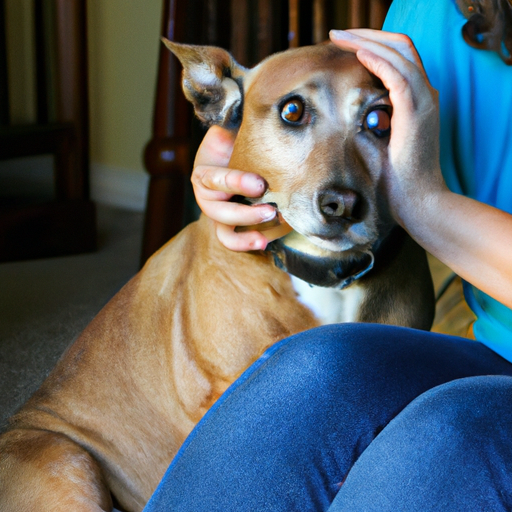Introduction
You, as a caregiver, probably wonder about the depth of your bond with your furry friend. Dogs have been partners to humans for thousands of years, and there’s no doubt that they’ve developed an uncanny ability to understand us. But, can dogs sense when something is wrong with their owner? Let’s delve into this fascinating topic.
The Science Behind Dogs Sensing Illness
Canine companions have long been praised for their impressive sense of smell, which is estimated to be between 10,000 to 100,000 times more sensitive than ours. This extraordinary olfactory capacity allows dogs to detect changes in their owner’s body chemistry.
For example, research has shown that dogs can detect certain types of cancers by sniffing a person’s breath or urine. Diabetes, too, alters the smell of a person’s breath and sweat, which dogs can pick up on.
Dogs and Emotional Distress
It’s not just physical ailments that dogs can perceive. If you’re feeling down, your dog might pick up on it too. Dogs are known to be empathetic creatures and are sensitive to their owner’s mood changes. They can read facial expressions, body language, and even your tone of voice.
Here are some signs that your dog is responding to your emotional distress:
- Increased clinginess
- Excessive licking or nuzzling
- Unusual behavior such as pacing or whining
Dogs have also been known to exhibit mirror behavior, where they mimic the actions or emotions of their owner. If you’re feeling anxious or stressed, don’t be surprised if your dog starts acting out as well.
The Role of Dogs in Healthcare
Recognizing the unique abilities of dogs, some healthcare professionals are now incorporating them into their treatment plans.
Here’s a table outlining some health conditions and the role that dogs can play:
| Health Condition | Role of Dogs |
|---|---|
| Cancer | Early detection through scent |
| Diabetes | Alerting owners to dangerous blood sugar levels |
| Mental Health Conditions | Providing emotional support and companionship |
| Autism | Helping to improve social interaction and communication |
This growing field of canine-assisted therapy demonstrates the powerful bond between humans and dogs, and the potential for dogs to improve our health and well-being.
What This Means for Caregivers
As a caregiver, understanding your dog’s ability to sense changes can be a powerful tool. Not only can it provide an early warning system for physical ailments, but it can also offer insight into the emotional well-being of the person you’re caring for.
With this understanding, you can foster a deeper bond with the dog, and enhance the care you provide. It’s just another testament to why dogs truly are man’s best friend.
Frequently Asked Questions
Q: Can dogs detect all types of illnesses?
A: While dogs have been shown to detect certain types of cancers and diabetes, more research is needed to understand the full extent of their abilities.
Q: What should I do if my dog is acting strangely around me?
A: It could be that they’re picking up on something. It’s always wise to consult with a healthcare professional.
Q: Can a dog’s sense of smell be trained to improve?
A: Yes, there are training programs that work to hone a dog’s olfactory abilities. However, even without training, dogs have a naturally impressive sense of smell.



